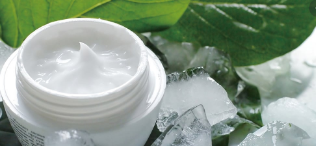How Effective Is Estriol Cream?
Estriol is a drug used to treat peri-menopause, a term given for a time after the termination of a woman’s menstrual cycle. This can be a normal part of life for many women and just as some people experience mood swings, anxiety and other similar problems post menopause, so too do many women. As a matter of fact, many women actually enjoy the experience of peri-menopause because it means they are no longer having to remember when they will next menstruate. However, some women take Estriol Cream for various other conditions such as endometriosis, ovarian cysts and fibroids and as well as all the other symptoms associated with peri-menopause. So, what exactly does Estriol do?

Estriol cream is generally a topical medication used to treat the various symptoms associated with peri-menopause such as hot flashes, night sweats and vaginal dryness. As a result of this, it may be tempting to think that there would be nothing else for women to do besides stop using the Estriol cream. However, you need to keep in mind that Estriol Cream is only one part of the overall puzzle for dealing with symptoms. There are several different treatment options that a woman can use and in some cases, Estriol simply cannot work alone. If you are suffering from any of these symptoms and thinking of using Estriol, you need to know that there are several side effects associated with using Estriol and you may want to consider alternatives.
The most common adverse reaction to Estriol is the increase in plasma levels of estrogen. Estriol causes an increased production of estrogen from the adrenal gland and the ovary, which in turn increases plasma levels of estrogen. In some women this can cause serious problems including heart problems and stroke. Estriol should not be used during a heart attack because of the increase in risk of congestive heart failure and blood clots. Women who are on other forms of hormonal therapy should not take Estriol and should discuss this option with their doctor.
Estriol also increases the level of testosterone, which some people find can increase irritability and other menopausal symptoms such as depression. Estriol is not intended to be a hormone replacement therapy and its effects on your hormones are not the same as those of a hormone replacement. Estriol Cream is to be used in addition to a regular high quality estrogen cream to help prevent or control the symptoms of Estriol and the skin ageing symptoms that often accompany them. Estriol works by increasing the body’s production of estrogen and other hormones, and in most people this is enough to slow down the signs of menopause and even help relieve the uncomfortable symptoms of menopause itself. Estriol can also be used to reverse the signs of aging or to help prevent future menopause if taken as directed.
Estriol is mainly excreted through the kidneys and is therefore not usually absorbed by the gastrointestinal tract. Estriol is unlikely to pass through the blood stream because it is an alpha-adrenergic drug and therefore cannot travel through the blood stream. Estriol normally undergoes metabolism by the liver; however, in rare instances, small amounts of estriol may be metabolised by the body by means of unopposed enzymes called retinoids. In any event, the majority of estradiol is excreted via the urine and is consequently not a cause for concern when consumed.
You should be aware that Estriol Cream contains several substances that can be potentially dangerous if you are pregnant or breast feeding. Therefore, before using Estriol Cream, you should consult with your doctor or pharmacist to ensure that the potential risks are neither present nor likely. Some of the common adverse reactions associated with Estriol Cream include vaginal bleeding, lightheadedness, rash, itching, hives, swelling of the face, lips, throat, or tongue, and stomach pain. If at any time you experience any of these symptoms after applying Estriol, discontinue use immediately and contact your doctor or pharmacist. You should not use Estriol Cream if you are allergic to lactose, cow’s milk, soy, wheat, or other products that contain milk or lactose.